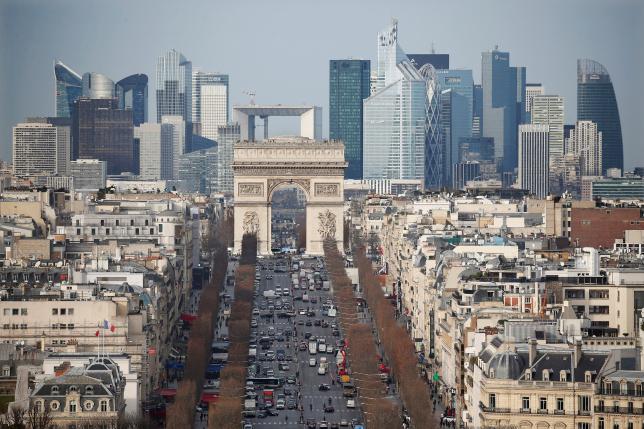Franchising, retail, business

07/07/2016
The French government pledged on Wednesday to make its tax regime for expatriates the most favorable in Europe in a landgrab for London banking business displaced by Britain's decision to quit the European Union.
"We want to build the financial capital of the future," Prime Minister Manuel Valls said at a hastily arranged visit to the annual conference of France's financial industry lobby Europlace. "In a word, now is the time to come to France."
France's financial sector has often complained of government ambivalence towards the industry, which is subject to high taxes and sometimes hostile remarks from politicians.
But Paris sees an opportunity in last month's Brexit vote, the regulatory implications of which place a huge question mark over London's place as the center of Europe's banking business.
"We are bringing solutions today to companies that are asking questions and expecting answers to prepare for the future," Valls said to enthusiastic applause from the audience of senior bankers and finance chiefs.
He said France's already favorable tax regime for expatriates and French nationals returning from stints abroad would in future be applicable for their first eight years in France, up from five currently.
The scheme includes deductions for non-salary perks like employers paying for employees' children's school fees and for revenue earned on capital held abroad.
Valls said the government would also set up a one-stop administrative point for foreign firms seeking a foothold in France with service in languages other than French.
Meanwhile, for the benefit of expat families, schools would open as many classes for foreign children in their native language as necessary.
For his part, Bank of France governor Francois Villeroy de Galhau promised French regulators would quickly examine applications from any financial institutions licensed in Britain that might seek to set up shop in France.
"We are not in a war with London... but there is competition and we want to make Paris Europe's top financial center," the head of the wider Paris region, Valerie Pecresse, told bankers.
Though often neglected in the past, the industry's proposals for making Paris more attractive internationally are no longer falling on deaf ears.
Socialist President Francois Hollande said last week tax regulations needed to be adapted to make Paris more attractive, in a stark contrast to his description of the finance industry his main enemy during his 2012 election campaign.
RED CARPET
Finance Minister Michel Sapin turned the tables on outgoing British Prime Minister David Cameron, who had offered to "roll out the red carpet" for French firms when Hollande took office in 2012. The day after the Brexit vote, Sapin told reporters: "The red carpet can be used both ways".
Paris is already the biggest center for many markets in the euro zone, including corporate bond issuance and investment management, with 3.6 trillion euros of assets under management.
Other financial centers in the 19-country currency bloc got an early start on Paris in lobbying London financial firms ahead of the vote on Britain's EU membership vote last month.
Milan's new center-left mayor, Giuseppe Sala, met with Andrea Enria, chairman of the European Banking Authority on Wednesday, to urge the London-based EU watchdog to choose Italy's financial capital as its new home given it was highly likely it would have to leave Britain.
Milan is also vying to attract another London-based EU body, the European Medicines Agency. Sala said his home city can offer excellent air transport links, cheaper offices and homes, and potential tax incentives.
Although it will take years for Britain to work out its future relationship with the EU, Sala said the EBA may want to switch location quickly to limit the uncertainty its multinational staff is facing.
The EBA reviews its location contracts every three years, Sala added, and that such a review was due this year.
"My government is committed to helping me," Sala told a news conference at EBA's office.
Madrid said on Monday it was considering granting tax breaks to attract banks and international firms looking to move operations away from Britain after its vote to leave the European Union.
France and other EU countries argue that British financial firms should not be able to keep the "passport" which allows them access to EU markets unless Britain accepts the free movement of people, which Brexit campaigners oppose.
(Additional reporting by Alessandra Galloni and Huw Jones in London, Editing by Andrew Callus and Peter Graff).
Fonte:http://www.reuters.com/article/us-britain-eu-france-valls-idUSKCN0ZM165